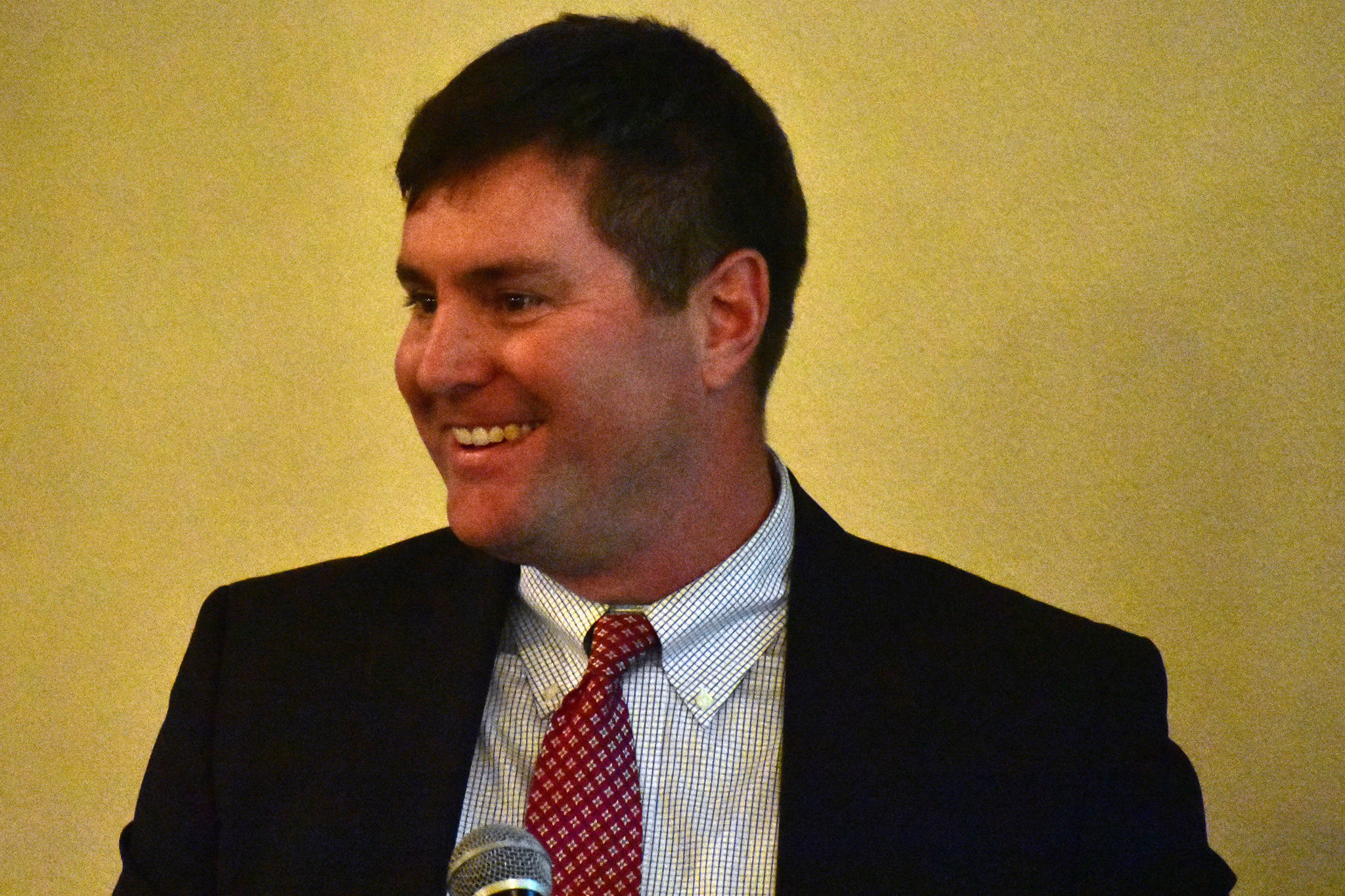Everyone is a potential target of a cyber security attack.
That was the message Frank Reid of the Federal Bureau of Investigation conveyed to the Juneau Chamber of Commerce luncheon Thursday afternoon at the Moose Lodge.
But while there are a number of ways scammers will try and get your personal information, there are things you can do to protect yourself, according to Reid.
One of the steps is making yourself aware of what kind of information scammers use. In an age of massive digital exposure, there’s quite a lot.
“You all are in the business of advertising,” Reid told the crowd of local business representatives. “Advertisements tell information about the target, who got this contract, who got that contract. There’s no secret, they use this stuff.”
He urged the crowd to be cognizant of what kind of information they’re putting out to the public, both about their business and personal lives.
“Don’t post anything you wouldn’t want to see on the front page of a newspaper,” he said.
He gave some statistics that some at the luncheon that sent murmurs through the crowd.
A ransom ware attack, where a system is taken over by hackers and not released until a payment it made, occurs somewhere across the globe an average of once every 14 seconds, he told the crowd. Since 2013, $26 billion had been lost worldwide to various cyber attacks and since January 2015 there had been a 1,300 percent increase of reported incidents.
He told the audience to use reputable anti-virus software, and to keep the program up to date.
Crucially, Reid said, it was important to be vigilant and keep an eye on accounts and suspicious emails or phone calls.
“Pick up a phone,” he said. “Call a known number of a known contact to verify. A lot of cases the only thing that needed to be done was a phone call made.”
Most in the audience were aware of the problem but some were taken aback by the scale.
“This is a lot bigger than I thought it was, and it’s a lot more worldwide than I thought it was,” Sharon Van Valin said. “It’s very sophisticated, something we probably can’t guard against no matter how clever we think we are.”
She complained that she received spam calls daily, to the point to where she no longer answers an unknown number unless a voicemail is left.
Andy Hughes, a former government worker, said this was the first presentation he had seen on fighting crime on a world-wide basis.
“I do fair amount of (online) banking and investing and it just alerts me that I have to double check.”
Reid encouraged the audience to be vigilant, and have protocols for both business and personal accounts for verification and reporting potential crimes.
While the FBI couldn’t investigate every report, because Juneau was a smaller community, smaller actions have more impact and can get more attention.
The State of Alaska has been the victim of a number of cyber attacks over the years. In August, the City and Borough of Juneau lost nearly $80,000.
Reports of online crimes can be made to the FBI’s Internet Crime Complaint Center, or ic3.gov.
• Contact reporter Peter Segall at 523-2228 or psegall@juneauempire.com.

